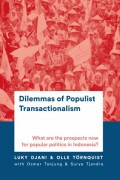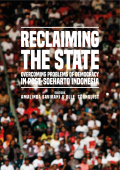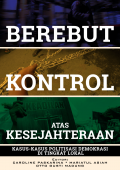
Why is Indonesia by late 2016 suddenly so far from Jokowi's Solo model of negotiating social contracts, which even produced a president in favour of change? And why are we now so far from the broad alliances of unions, CSOs and progressive politicians that produced a universal social insurance system? Why have the dynamics of Jakarta rather become more reminiscent of Donald Trump and European right-wing populist politicians’ ability to gain substantial support from not just extremists and racists but also the neglected working class? And what are the prospects, then, if any, for popular politics?


